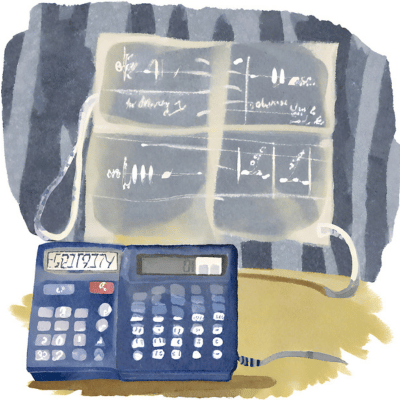Sie möchten gern in einen Stromerzeuger oder ein Notstromaggregat investieren, wissen aber nicht, welche Leistung der Generator erbringen muss, um im Bedarfsfall die Versorgung wichtiger Geräte zu gewährleisten? Bevor man sich für einen Generator entscheidet, ist es wichtig, den eigenen Strombedarf genau zu kennen, um die optimale Performance und die richtige Größe des Notstromaggregats zu wählen. In diesem Beitrag erklären wir, wie Sie Ihren Energiebedarf im Notfall berechnen und den passenden Generator auswählen.
Das passende Notstromaggregat: Größe berechnen
Hier sind die Schritte, die Ihnen dabei helfen, Ihren gesamten Energiebedarf zu ermitteln:
- Liste der notwendigen Geräte erstellen: Beginnen Sie mit einer Liste aller Geräte und Systeme, die im Notfall mit Strom versorgt werden müssen. Dazu gehören beispielsweise Kühlschränke, Beleuchtung, Heizungen, medizinische Geräte oder Sicherheitssysteme.
- Leistungsaufnahme ermitteln: Suchen Sie für jedes Gerät die maximale Leistungsaufnahme in Watt. Diese Information finden Sie in der Regel auf dem Typenschild des Geräts oder im Benutzerhandbuch.
- Berücksichtigung der Anlaufströme: Einige Geräte, insbesondere solche mit Elektromotoren wie Kühlschränke oder Pumpen, benötigen beim Start ein Vielfaches ihrer Betriebsleistung. Dieser Anlaufstrom kann den Energiebedarf kurzzeitig deutlich erhöhen.
- Summe bilden: Addieren Sie die Leistungsaufnahmen aller Geräte, um Ihren gesamten Energiebedarf zu ermitteln. Für Geräte mit hohen Anlaufströmen sollten Sie einen entsprechenden Zuschlag einrechnen.


Auswahl der richtigen Generatorgröße
- Überdimensionierung vermeiden: Ein zu groß gewählter Generator ist nicht nur teurer in der Anschaffung, sondern arbeitet auch ineffizienter und mit höheren Betriebskosten.
- Unterdimensionierung verhindern: Ein zu klein gewählter Generator kann die benötigten Geräte nicht zuverlässig mit Strom versorgen und durch Überlastung Schaden nehmen.
- Reserve einplanen: Um sowohl Über- als auch Unterdimensionierung zu vermeiden, empfiehlt es sich, eine Reserve von etwa 20-25 % einzuplanen. So sind Sie auch für zukünftige Erweiterungen Ihrer Notstromversorgung oder unerwartet höhere Leistungsanforderungen gewappnet.
Leistung und Größe des Notstromaggregats berechnen und Fehlkäufe vermeiden
Die richtige Vorbereitung und Planung ist entscheidend, um im Notfall eine zuverlässige Stromversorgung sicherzustellen. Durch die genaue Berechnung Ihres Energiebedarfs und die Auswahl eines entsprechend dimensionierten Generators können Sie Ausfallzeiten minimieren und Ihre wichtigen Geräte und Systeme effektiv schützen. Nehmen Sie sich die Zeit, Ihren Bedarf sorgfältig zu ermitteln, und investieren Sie in eine Lösung, die Ihren Anforderungen gerecht wird. Auf diese Weise sorgen Sie dafür, dass beim Auftreten eines Stromausfalls alle wichtigen Geräte weiterhin mit Strom versorgt werden, ohne dass das Notstromaggregat durch eine Überlastung zu Schaden kommt.





